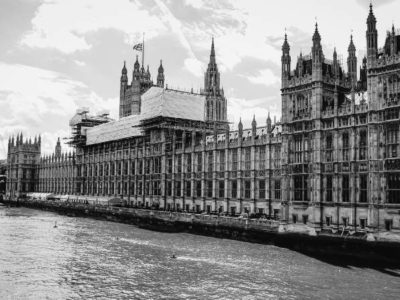Housing Secretary Michael Gove has announced plans that outlines significant changes to regulations surrounding short-term lets in the UK.
Here’s a summary of the key points:
- Planning Permission Requirement: Future short-term lets will require planning permission, subjecting them to the planning process.
- Mandatory National Register: A national register will be established, providing local authorities with information about short-term lets in their area to better understand their impact on communities and ensure compliance with health and safety regulations.
- Limit on Homeowner Letting: Homeowners can continue to let out their main or sole home for up to 90 nights a year without planning consent.
- New Planning Use Class: A new planning use class will be created for short-term lets not used as a sole or main home. Existing dedicated short-term lets will be automatically reclassified into this new class.
- Permitted Development Rights: Associated permitted development rights will be introduced, allowing properties to be changed from short-term lets to standard residential dwellings or vice versa. Local authorities can remove these permissions if necessary.
- Focus on Short-Term Lets: The planning changes and register will specifically target short-term lets and will not affect hotels, hostels, or B&Bs.
The government aims to strike a balance between supporting the tourist economy and ensuring local communities have access to affordable housing. These measures are designed to give councils more control over short-term lets and address concerns about their impact on housing availability for local residents. More details are expected to be revealed later.
Both Housing Secretary Michael Gove and Tourism Minister Julia Lopez emphasize the importance of balancing the needs of local communities with the benefits of short-term lets for homeowners and the tourism industry. They suggest that these changes will enable both local residents and the visitor economy to thrive.
Andy Fenner, chief executive of the trade group the Short Term Accommodation Association, says: “We’ve been calling for a registration scheme for years, so it’s disappointing that when it finally arrives it completely fails to address the challenges the country is facing.
“The registration scheme could have been game changing for tourism in England had it covered all types of accommodation but, instead, what we’ve got is a missed opportunity that’s a half-way house at best. Had it been that comprehensive, politicians up and down the country would have been able to make well-informed decisions on planning.
“They’d have been able to see exactly how the tourist industry functioned in their local area, which is important because a one-size-fits-all approach that achieves the right balance in one place would crush the tourism in another.
“Instead, the holiday let industry is doomed to continue being unfairly regarded as tourism’s problem child, second-best to hotels, and unjustly taking the brunt of the blame game surrounding housing supply and affordability, despite the lack of a proper evidence base. The presumption is that, if you shut down all short term rentals tomorrow, the housing crisis would be solved but that is naive in the extreme.
“The holiday let industry is not responsible for the housing crisis. Its causes run far deeper than that and are centred mainly on a lack of housebuilding and the abandoning of housing targets.
“Short term lets are the modern, dynamic face of the tourism industry and we can’t force people into B&Bs and hotels through legislation. If we did, UK tourism would suffer as people voted with their feet and went elsewhere. The world has moved on, and many tourists don’t want to settle for that any more.
“Restrictions in the number of short term rentals need to be measured against other important factors, such as employment, housing supply, housing need, and changes in the stock of other tourist accommodation. We will continue to call for a comprehensive registration scheme that includes all types of accommodation.
“Without this, the new powers councils are winning, which will allow them to rein in holiday lets using an effective veto on permitted development rights, will be prone to misuse and political posturing rather than a desire to do what is in the best interests of local communities.”

























Comments